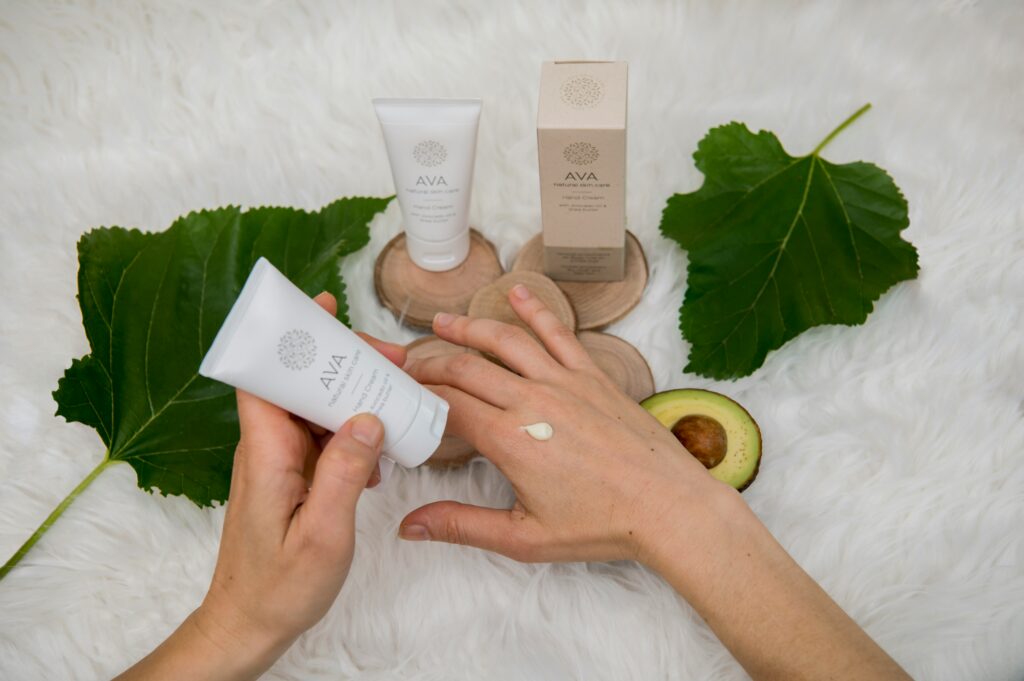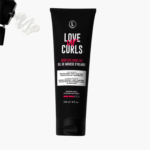Table of Contents
Introduction
The demand for natural skincare products has skyrocketed in recent years, reflecting a broader societal shift towards more sustainable and health-conscious lifestyles. With consumers becoming increasingly aware of what they put on their skin, the natural skincare industry is booming. However, questions remain: Do natural skincare products really work? Are they truly better for your skin compared to synthetic alternatives? And what should you know before making the switch?
In this in-depth article, we’ll explore everything you need to know about natural skincare products. From understanding what qualifies as “natural” to the scientific evidence supporting their effectiveness, we’ll guide you through the nuances of this ever-growing sector. Whether you’re a seasoned user of natural skincare or just starting to consider it, this comprehensive guide will help you make informed decisions that benefit both your skin and the planet.
Understanding Natural Skincare Products: What Are They Really?

Natural skincare products are defined by their use of ingredients derived from nature, such as plants, minerals, and other organic compounds. Unlike synthetic skincare products, which are often formulated with lab-created chemicals and preservatives, natural skincare products emphasize minimal processing and the use of raw, unrefined ingredients.
1. Defining “Natural”: What Does It Mean?
The term “natural” in skincare is often ambiguous and can vary significantly between brands. In many regions, including the United States, there is no strict regulatory definition for “natural” in cosmetic labeling. This lack of standardization means that virtually any product can be labeled as natural, even if it contains only a small percentage of naturally derived ingredients.
For a product to be truly natural, it should ideally be free from synthetic chemicals, artificial fragrances, and colors. Common natural ingredients include essential oils, botanical extracts, minerals, and naturally occurring acids. Products labeled as “organic” must adhere to stricter guidelines, ensuring that the ingredients are grown without the use of pesticides, synthetic fertilizers, or genetically modified organisms (GMOs).
2. The Rise of Clean Beauty
The concept of “clean beauty” has become synonymous with natural skincare. Clean beauty emphasizes not only the use of natural ingredients but also a commitment to transparency, ethical sourcing, and sustainability. Clean beauty brands often prioritize eco-friendly packaging, cruelty-free practices, and fair trade sourcing, making it a holistic approach to skincare.
However, like “natural,” the term “clean” is not regulated, which can lead to greenwashing—a marketing tactic where brands exaggerate or falsely claim their products are environmentally friendly. As a consumer, it’s crucial to look beyond the label and investigate the brand’s practices and ingredient sourcing to ensure you’re truly supporting clean beauty.
3. Common Ingredients in Natural Skincare
Natural skincare products often boast a variety of plant-based and mineral ingredients, each with its own set of benefits:
- Aloe Vera: Known for its soothing and hydrating properties, aloe vera is commonly used in products for sensitive and dry skin.
- Jojoba Oil: This oil closely resembles the skin’s natural sebum, making it an excellent moisturizer for all skin types.
- Tea Tree Oil: With its antibacterial and anti-inflammatory properties, tea tree oil is a popular ingredient in products targeting acne.
- Shea Butter: Rich in vitamins A and E, shea butter is highly moisturizing and beneficial for dry or damaged skin.
- Green Tea Extract: A powerful antioxidant, green tea extract helps protect the skin from environmental damage and reduce inflammation.
- Rosehip Oil: Packed with essential fatty acids and vitamins, rosehip oil is known for its ability to improve skin texture and reduce the appearance of scars and fine lines.
Each of these ingredients brings unique benefits to the table, and when used correctly, they can significantly enhance the health and appearance of your skin.
The Effectiveness of Natural Skincare Products: Science and Evidence

The effectiveness of natural skincare products is one of the most hotly debated topics in the beauty industry. While proponents swear by the benefits of natural ingredients, skeptics argue that synthetic alternatives, which are often more stable and potent, offer superior results. So, what does the science say?
1. Historical Use of Natural Ingredients
Natural ingredients have been used for skincare for thousands of years. Ancient civilizations, from the Egyptians to the Greeks, relied on plant-based remedies to treat skin ailments and enhance beauty. For example, Cleopatra is famously known for bathing in milk and honey, both of which are now recognized for their moisturizing and antibacterial properties.
This historical context underscores the long-standing belief in the power of natural ingredients. However, it’s important to note that while these ingredients were effective to some extent, modern skincare science has since evolved, allowing us to understand their benefits and limitations more thoroughly.
2. Scientific Studies Supporting Natural Skincare
Modern research has validated the effectiveness of several natural ingredients. For instance, green tea extract is rich in polyphenols, which have been shown to reduce inflammation and protect the skin from UV damage. Studies have also demonstrated that ingredients like aloe vera and chamomile can effectively soothe irritated skin and accelerate wound healing.
Vitamin C, derived from natural sources like acerola cherry or Kakadu plum, is another powerhouse ingredient. It’s a potent antioxidant that brightens the skin, boosts collagen production, and reduces the appearance of dark spots. Clinical trials have confirmed the ability of natural vitamin C to improve skin texture and tone, although its effectiveness can vary depending on the formulation and concentration.
3. Comparing Natural and Synthetic Ingredients
While natural ingredients have proven benefits, they often lack the potency and consistency of synthetic ingredients. For example, retinoids, which are derived from vitamin A, are among the most effective anti-aging compounds available. However, they can also cause irritation, especially in those with sensitive skin. Natural alternatives like bakuchiol offer similar benefits with fewer side effects, but they may not be as potent as synthetic retinoids.
Moreover, synthetic ingredients are often more stable than their natural counterparts. Vitamin C, for instance, is highly unstable and can lose its effectiveness when exposed to light and air. Synthetic forms, such as ascorbyl palmitate, are designed to be more stable and deliver consistent results.
That said, the choice between natural and synthetic ingredients ultimately comes down to individual skin type and preferences. Some people may find that natural ingredients are gentler and better suited to their skin, while others may prefer the potency of synthetic products.
Natural vs. Synthetic: Which Is Better for Your Skin?

The natural vs. synthetic debate is not a simple one. Both types of products have their own set of advantages and disadvantages, and the right choice for you depends on various factors, including your skin type, concerns, and personal preferences.
1. The Case for Natural Skincare
Natural skincare products are often lauded for their gentleness and compatibility with sensitive skin. Because they contain fewer harsh chemicals and preservatives, they are less likely to cause irritation or allergic reactions. For example, natural oils like argan and jojoba are non-comedogenic, meaning they won’t clog pores, making them ideal for those with acne-prone skin.
Furthermore, many natural ingredients are rich in antioxidants and essential fatty acids, which nourish and protect the skin. For instance, rosehip oil is packed with vitamins A and C, which help to brighten the skin and reduce the appearance of scars and hyperpigmentation.
Another advantage of natural skincare is its environmental impact. Natural products are often biodegradable and produced using sustainable practices, making them a more eco-friendly option. Brands that focus on clean beauty typically use recyclable packaging and avoid harmful chemicals that can damage the environment.
2. The Case for Synthetic Skincare
Synthetic skincare products, on the other hand, are designed for maximum efficacy. Lab-created ingredients are formulated to target specific skin issues with high precision, offering faster and more noticeable results. For example, hyaluronic acid, which can be synthesized in a lab, is a powerful humectant that attracts and retains moisture in the skin, providing immediate hydration.
Moreover, synthetic ingredients are often more stable and have a longer shelf life compared to natural products. This stability ensures that the active ingredients remain effective over time, delivering consistent results with each use.
Synthetic products also benefit from extensive research and clinical testing, which provides a greater body of evidence supporting their safety and effectiveness. For instance, retinoids, AHAs, and peptides have been extensively studied and are widely recognized for their ability to improve skin texture, reduce wrinkles, and treat acne.
However, synthetic products are not without their downsides. They can sometimes cause irritation, especially in those with sensitive skin, and may contain preservatives or fillers that some consumers prefer to avoid. Additionally, the environmental impact of synthetic skincare can be significant, particularly when it comes to the use of non-biodegradable chemicals and non-recyclable packaging.
3. Finding the Right Balance
For many people, the best approach to skincare is a balanced one that incorporates both natural and synthetic products. For example, you might use a natural oil to moisturize and soothe the skin, while also incorporating a synthetic retinoid or AHA to target specific concerns like wrinkles or acne.
The key is to understand your skin’s unique needs and preferences. If you have sensitive skin, you might lean more towards natural products to avoid irritation. If you’re looking for powerful anti-aging benefits, you might prefer synthetic ingredients that are backed by extensive research.
In the end, there’s no one-size-fits-all answer. The best skincare routine is one that works for you, whether that means using natural, synthetic, or a combination of both types of products.
Potential Risks and Considerations with Natural Skincare Products

While natural skincare products are often perceived as safer and gentler, it’s important to recognize that they can still pose risks. Understanding these risks can help you make informed decisions and avoid potential issues.
1. Allergic Reactions and Sensitivities
One of the most common risks associated with natural skincare products is the potential for allergic reactions. Just because an ingredient is natural doesn’t mean it’s hypoallergenic. In fact, some natural ingredients, such as essential oils, are known allergens that can cause skin irritation, redness, and even contact dermatitis in sensitive individuals.
For example, tea tree oil, while effective for treating acne, can be irritating if used in high concentrations or on broken skin. Similarly, citrus oils like lemon and orange can cause photosensitivity, leading to increased risk of sunburn if applied before sun exposure.
To minimize the risk of allergic reactions, it’s essential to patch test any new product before applying it to your face. Apply a small amount of the product to a discreet area of your skin, such as the inside of your wrist or behind your ear, and wait 24-48 hours to see if any reaction occurs.
To minimize the risk, start with a gentle product like the CeraVe Hydrating Facial Cleanser, which is formulated to cleanse without irritating the skin. You can find it here on Amazon.
2. The Risk of Contamination
Natural skincare products, particularly those that are preservative-free, are more susceptible to contamination by bacteria, mold, and yeast. This risk is heightened if the products are stored improperly or if they are exposed to water, which can introduce microorganisms into the formula.
To reduce the risk of contamination, it’s important to store natural skincare products in a cool, dry place and use them within their recommended shelf life. Some products may require refrigeration to maintain their freshness, particularly those containing perishable ingredients like fresh fruit extracts or dairy-based ingredients.
Additionally, using clean hands or a sanitized spatula to dispense products can help prevent the introduction of bacteria into the product. If a product smells off or changes in texture or color, it’s best to err on the side of caution and discontinue use.
3. Greenwashing and Misleading Labels
As mentioned earlier, the lack of regulation around terms like “natural” and “clean” can lead to greenwashing, where brands make misleading claims about the natural or eco-friendly nature of their products. This can make it challenging for consumers to determine which products are genuinely natural and which are simply using marketing tactics to appeal to the clean beauty trend.
To avoid falling victim to greenwashing, it’s important to read ingredient labels carefully and research the brand’s practices. Look for third-party certifications, such as USDA Organic, Ecocert, or COSMOS, which can provide some assurance that the product meets certain natural or organic standards.
You can also look for brands that prioritize transparency, providing detailed information about their ingredient sourcing, manufacturing processes, and environmental impact. Brands that are truly committed to clean beauty will often go above and beyond to provide this information to consumers.
How to Incorporate Natural Skincare Products into Your Routine

If you’re considering making the switch to natural skincare, it’s important to do so in a way that supports your skin’s health and minimizes the risk of adverse reactions. Here are some tips on how to incorporate natural skincare products into your routine effectively.
1. Start Slowly and Gradually
When introducing new products to your skincare routine, it’s best to do so gradually. Start with one or two products, such as a cleanser and moisturizer, and use them consistently for several weeks before adding additional products. For exfoliation, consider starting with the Acure Brightening Facial Scrub, which uses natural ingredients to gently remove dead skin cells. You can purchase it here on Amazon.”
For example, if you’re switching to a natural oil cleanser, start by using it in the evening to remove makeup and cleanse your skin. Follow up with a natural moisturizer that suits your skin type. Once you’re comfortable with these products, you can begin incorporating additional natural products, such as serums or masks.
2. Understand Your Skin Type and Concerns
Before selecting natural skincare products, it’s important to understand your skin type and specific concerns. Natural ingredients can be highly effective, but their benefits can vary depending on your skin’s needs.
- For dry skin: look for products that contain hydrating ingredients like hyaluronic acid (from natural sources like Tremella mushroom), shea butter, or aloe vera. For sensitive skin, choose gentle, soothing ingredients like chamomile or rosewater. The Thayers Alcohol-Free Rose Petal Witch Hazel Toner is a great option that balances pH while soothing the skin. Available here on Amazon.
- For oily or acne-prone skin: Opt for lightweight, non-comedogenic oils like jojoba or grapeseed, and consider using ingredients like tea tree oil or willow bark extract (a natural source of salicylic acid) to help control oil production and prevent breakouts.
- For sensitive skin: Choose gentle, soothing ingredients like chamomile, calendula, and oat extract, and avoid products with high concentrations of essential oils or fragrances.
- For anti-aging: Look for natural products that contain antioxidants like vitamin C, resveratrol, or green tea extract, as well as collagen-boosting ingredients like bakuchiol or rosehip oil.
Understanding your skin type and concerns will help you select natural products that are tailored to your needs, maximizing their effectiveness.
3. Be Patient and Consistent
One of the challenges of using natural skincare products is that they may take longer to show results compared to synthetic products. Because natural ingredients tend to be gentler, they often require consistent use over a longer period to achieve noticeable improvements in the skin.
It’s important to be patient and give your natural skincare products time to work. Consistency is key, so stick with your routine and resist the urge to switch products frequently. Over time, you should start to see the benefits of natural ingredients, such as improved skin texture, reduced redness, and a more radiant complexion.
4. Consider Mixing and Matching
While natural skincare products can be highly effective on their own, you don’t have to go all-natural to enjoy their benefits. Many people find success by combining natural and synthetic products in their routine. For sun protection, a natural option like Thinkbaby Safe Sunscreen SPF 50+ is highly recommended. It provides effective protection without the use of chemical UV filters. You can find it here on Amazon.
For example, you might use a natural cleanser and moisturizer, while incorporating a synthetic serum with active ingredients like retinoids or peptides. This approach allows you to enjoy the gentleness of natural products while still benefiting from the potency of synthetic actives.
The key is to find a balance that works for your skin. Pay attention to how your skin responds to each product, and don’t be afraid to experiment with different combinations until you find the perfect routine.
Conclusion
Natural skincare products offer a compelling alternative to conventional, synthetic skincare, particularly for those who value gentler, more environmentally friendly options. While there are pros and cons to both natural and synthetic products, the effectiveness of natural skincare largely depends on the quality of the ingredients and how they are incorporated into your routine.
By understanding what natural skincare products are, recognizing their potential benefits and risks, and learning how to integrate them into your daily regimen, you can make informed choices that support your skin’s health and well-being. Whether you choose to go all-natural or prefer a mix of natural and synthetic products, the most important thing is to find what works best for your skin and your lifestyle.
In the ever-evolving world of skincare, staying informed and mindful of your choices will ensure that your skin remains healthy, vibrant, and beautiful for years to come.
FAQs
What are natural skincare products?
Natural skincare products are those made from ingredients sourced directly from nature, such as plants, minerals, and other organic compounds. They typically avoid synthetic chemicals, artificial fragrances, and preservatives.
Are natural skincare products better than synthetic ones?
It depends on your skin type and concerns. Natural products are often gentler and better for sensitive skin, while synthetic products may offer more potent results. A combination of both can sometimes be the best approach.
Can natural skincare products cause allergies?
Yes, natural products can cause allergic reactions in some individuals, especially if they contain essential oils or other potent natural ingredients. It’s important to patch test any new product before using it on your face.
How do I know if a skincare product is truly natural?
Look for transparency in ingredient lists, third-party certifications (like USDA Organic), and brands that prioritize ethical sourcing and sustainability. Be wary of greenwashing, where products are misleadingly marketed as natural.
Can I use natural skincare products with synthetic ones?
Absolutely. Many people find success by combining natural and synthetic products in their skincare routine. This allows you to benefit from the gentleness of natural ingredients and the potency of synthetic actives.
How long does it take to see results from natural skincare products?
Natural skincare products may take longer to show results compared to synthetic products, as they tend to be gentler. Consistent use over several weeks or months is often necessary to see noticeable improvements.
Are natural skincare products better for the environment?
Generally, yes. Natural skincare products often use biodegradable ingredients and sustainable packaging, making them a more eco-friendly choice. However, it’s important to choose brands that are genuinely committed to environmental sustainability.
What are some common natural ingredients in skincare?
Common natural ingredients include aloe vera, jojoba oil, tea tree oil, shea butter, green tea extract, and rosehip oil. Each of these ingredients offers unique benefits for the skin.
Can natural skincare products expire?
Yes, natural skincare products can expire, especially those that are preservative-free. Always check the expiration date and store products properly to prevent contamination and spoilage.
What should I look for when choosing natural skincare products?
Consider your skin type, any specific concerns (like acne or aging), and the product’s ingredient list. Look for products that are free from synthetic chemicals and are made with high-quality, sustainably sourced natural ingredients.







